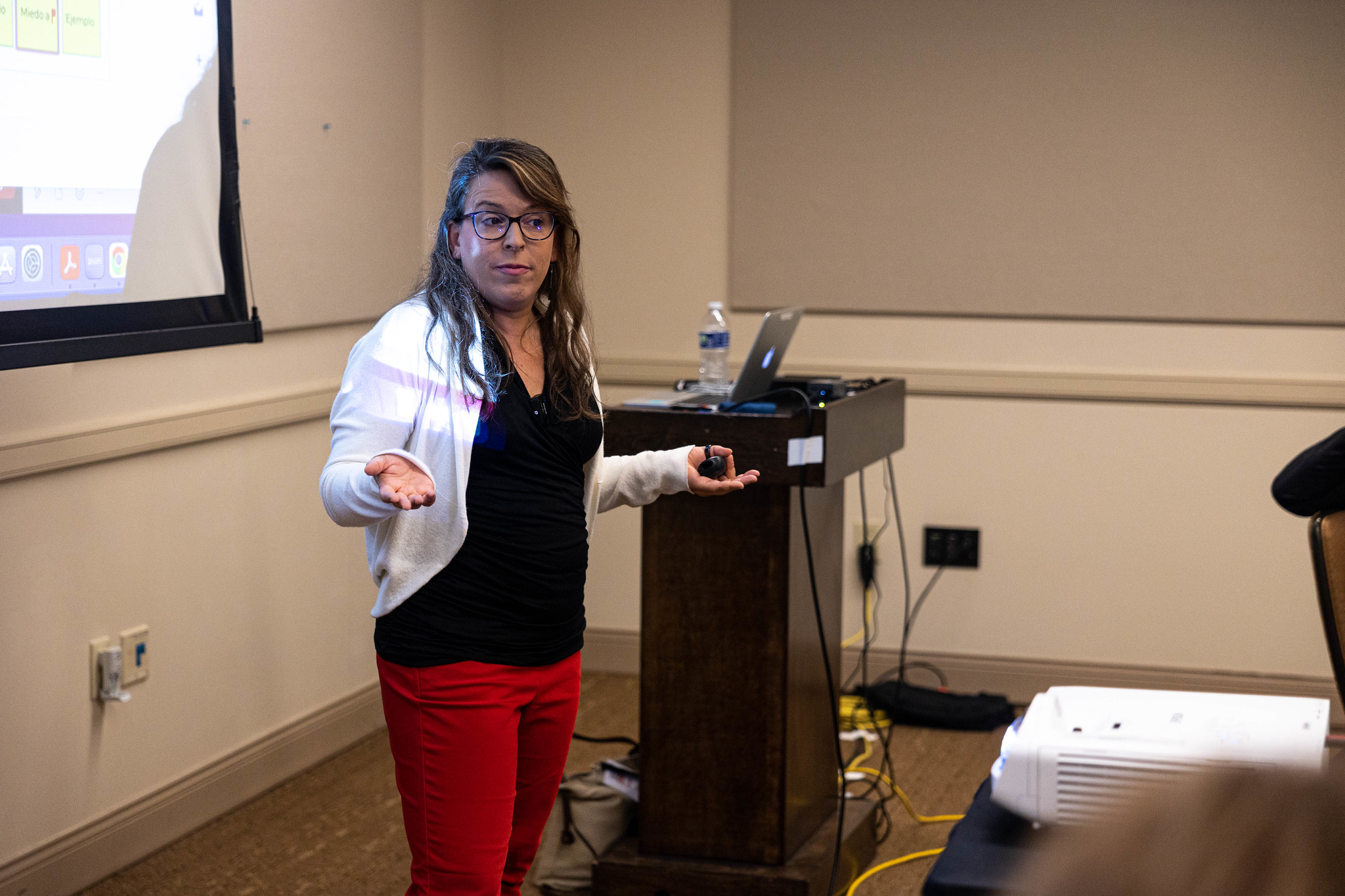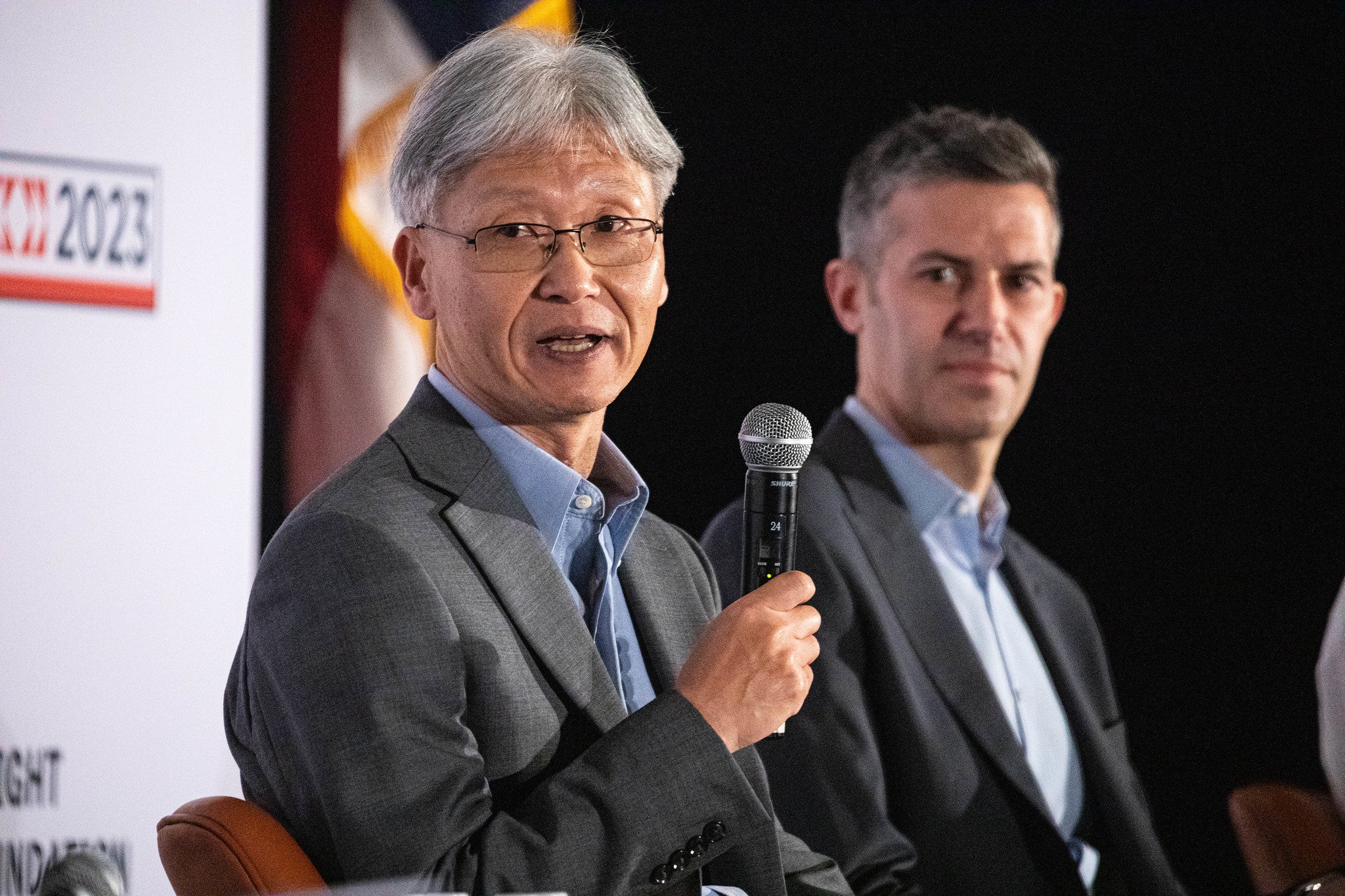
Reporter and founder of The Self Investigation, a foundation aimed at improving the mental health of journalists globally, Mar Cabra spoke about the rising rates of anxiety and depression in the media and what newsrooms can do to combat it.

During an ISOJ 2023 keynote, Yusuf Omar described how the future of journalism is in the palm of our hands–and in our faces. Explaining how his video publishing company, Seen.tv, became a journalism training ground for a 7 million subscriber news service, Omar said that as more people and brands engage with Augmented Reality interfaces, so, too, will news organizations.

Glenn Kessler, chief fact checker at the Washington Post, Khaya Himmelman, a political misinformation reporter, Bill Adair, the founder of PolitiFact and Sérgio Dávila, editor-in-chief of Brazillian newspaper Folha de S.Paulo spoke on a panel about fact checking and misinformation in hyperpolarized times moderated by Anya Schiffrin of Columbia University.

News creators gathered for a lunch workshop hosted by YouTube called “Shorts for journalists: How to optimize your news experience and tell your stories on YouTube Shorts” on the first day of the 24th ISOJ. YouTube Shorts are “snackable” videos that are 60 seconds or less in length and are meant to draw first-time viewers of a particular channel or full-length YouTube video.

Instead of worrying of being replaced by AI generative tools such as ChatGPT, journalists should be experimenting and exploring what that technology enables them to do better in their jobs, said AI experts during the panel “How can journalism incorporate AI, including generative tools like ChatGPT and Bard, to improve production and distribution of news?”, on the first day of ISOJ 2023.

Janelle Rodriguez, executive vice president of programming at NBC News, and David Ryfe, director of the School of Journalism and Media at the University of Texas at Austin, discussed challenges and opportunities facing network TV in the age of streaming and artificial intelligence.

View the full program for ISOJ 2023, an annual conference organized by the Knight Center for Journalism in the Americas that has analyzed the impact of the digital revolution on journalism for nearly a quarter of a century. In-person registration sells out fast, so be sure to reserve your spot today. We will also include simultaneous interpretation to Spanish.

The Knight Center for Journalism in the Americas has opened registration for the 24th International Symposium on Online Journalism (ISOJ), which is taking place on April 14 and 15, 2023, at the University of Texas at Austin. A preliminary list of speakers is now available and more will be added soon. The full program will be published shortly.

The International Symposium on Online Journalism (ISOJ) officially launched its callfor original research in online journalism to be considered for the 2023 conference and the #ISOJ Journal.

The Knight Center for Journalism in the Americas announces the dates for next year’s 24th International Symposium on Online Journalism (ISOJ) as April 14 - 15, 2023.

Panel members of 'Hype or not, how and when will web 3.0 (blockchain/NFTs) and the metaverse (AR/VR/XR) impact journalism?' discussed the opportunities presented by the advancement of such technologies for news organizations and how these developments will affect the media.

Over the past decade, press freedom around the world is deteriorating and the list of countries facing issues has been growing. With the testimonial of seven journalists from Asia and Latin America, ISOJ 2022 debated the state of press freedom and the serious situation reporters are recently facing in India, Hong Kong, Colombia, Brazil, Venezuela, El Salvador, and Nicaragua.